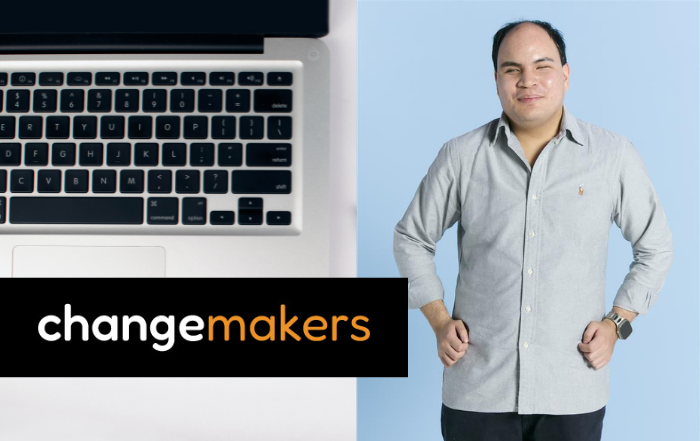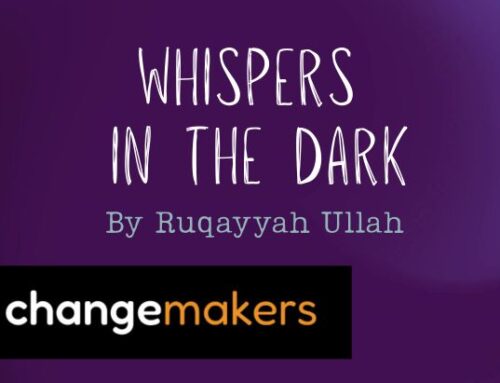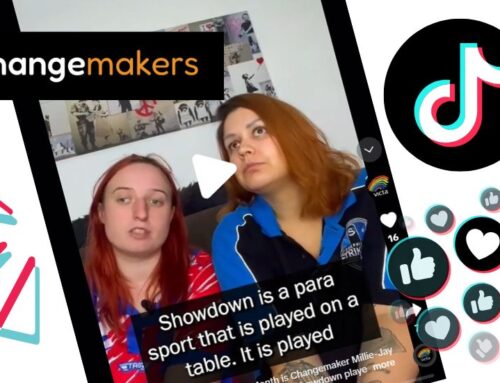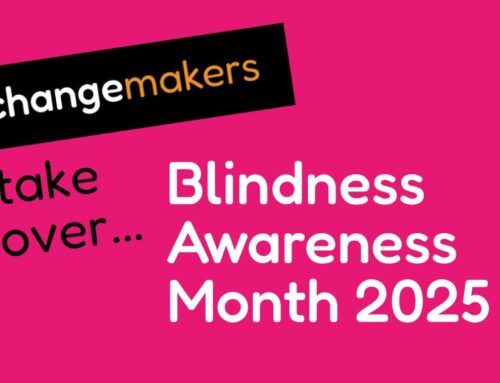
Hear from Changemaker Robin on his experience as a VI person navigating the workplace
Let’s start with the elephant in the room: what’s work really like when you’re visually impaired? A VIP, if you will. And no, it’s not the first time that joke’s been made. You’ll hear it again, probably at least once a week for the rest of your life.
Landing the job is its own battle, but that’s for another article. This one’s about what comes next. The celebrations are over, the offer’s signed, and now it’s time to see what this whole adulting-at-work thing is really about.
The new job jitters
First job nerves? Everyone gets them. Sighted or not, we all walk in on day one asking ourselves the same questions.
Am I going to be good at it? What will the people be like? What’s the atmosphere going to feel like? Will I actually fit in?
Everyone asks those questions. Being visually impaired adds another layer, yes, but those nerves are part of the deal for anyone. And the truth is, they settle faster than you think.
We’ll get into the VI-specific considerations. But remember this: everyone has their own challenges. Yours might look different, but you’re not alone in figuring out how to settle and find your place at work.
Getting the right tools
One of the first hurdles with a disability at work isn’t the job itself, it’s making sure you’ve actually got the tools to do it well.
In some ways, that can be a simpler ask if your disability is visible. People can see it and are more likely to expect that you’ll need something to make the workplace accessible. If it’s invisible, it’s often less obvious and harder to bring up.
Either way, asking for equipment or adjustments can feel nerve-racking. Especially if it’s your first job and you’re still figuring out how much to say and when.
They hired you because they know you can do the job. So why wouldn’t they give you the tools to actually do it well? You get to do the job properly, and they get what they hired you for. Win win.
I was pretty clear about what I needed from the outset. I think I even mentioned it at the interview stage. I’ve been an Apple user since uni, and while I said I’d be happy to re-learn Windows screen readers, I knew I’d be more comfortable with a Mac. It was a relevant conversation, since my workplace uses a mix of Mac and Windows machines.
That way I could immediately get stuck in, instead of spending weeks re-learning JAWS, NVDA, or Narrator, the built-in Windows screen reader. Having the right set-up meant I could focus on the job itself, not on wrestling with tech.
So while you might have to brace yourself for that conversation, and it might feel tough in the moment, in the long run you’re making life much easier for yourself.
Leaning on your team
Even with the right kit, there’ll still be times you need to lean on colleagues. Nobody loves asking, but sooner or later you’ll have to.
In my case, I deliver presentations and work with visual assets, so I often ask my team for specific visual details or for help formatting slides. These days, AI is most definitely your friend when it comes to certain tasks, and tools like Aira or other services also help fill the gaps.
Still, it can be tough. Nobody wants to feel like a burden by asking colleagues for help. That worry is common across the disability community, and honestly, it might be one of the hardest things to work through.
But once you find solutions that work for you, whether that’s support from colleagues, AI, or other tools, it stops being a big deal. It simply becomes how you work. With time, you realise asking for help doesn’t make you less capable. It makes you more effective.
Breaking barriers
Gear and colleagues you can figure out. What’s harder are the assumptions — the ones people make about you, and the ones you sometimes make about yourself.
The classic one is that people assume being visually impaired means you can’t see anything at all. Then there’s the damaging assumption that we’ll slow things down, or always need someone looking over our shoulder.
For me, it hasn’t been about proving groups or people wrong. It’s been more about challenging my own internal assumptions and barriers. I’m capable of the job. Asking for help isn’t going to make people look at me in a lesser way. And I do have as much right to be here as anyone else.
For you, it might look different. Surpassing people’s expectations might be what drives you, and if that’s the case, use it. Push on.
Whatever your path looks like, don’t let anyone else define what you can or can’t do. If you decide something isn’t possible, let that be your decision, not something you’ve been told.
Tough some days, easier than most think
Work has its tough days, and being visually impaired adds a few more. But with the right tools, support, and mindset, it’s often easier than people, including you, might think.
You belong here. You can do the job. And you’ll prove it more than once.
As for being a VIP, it just means you’re a Very Invaluable Professional.





